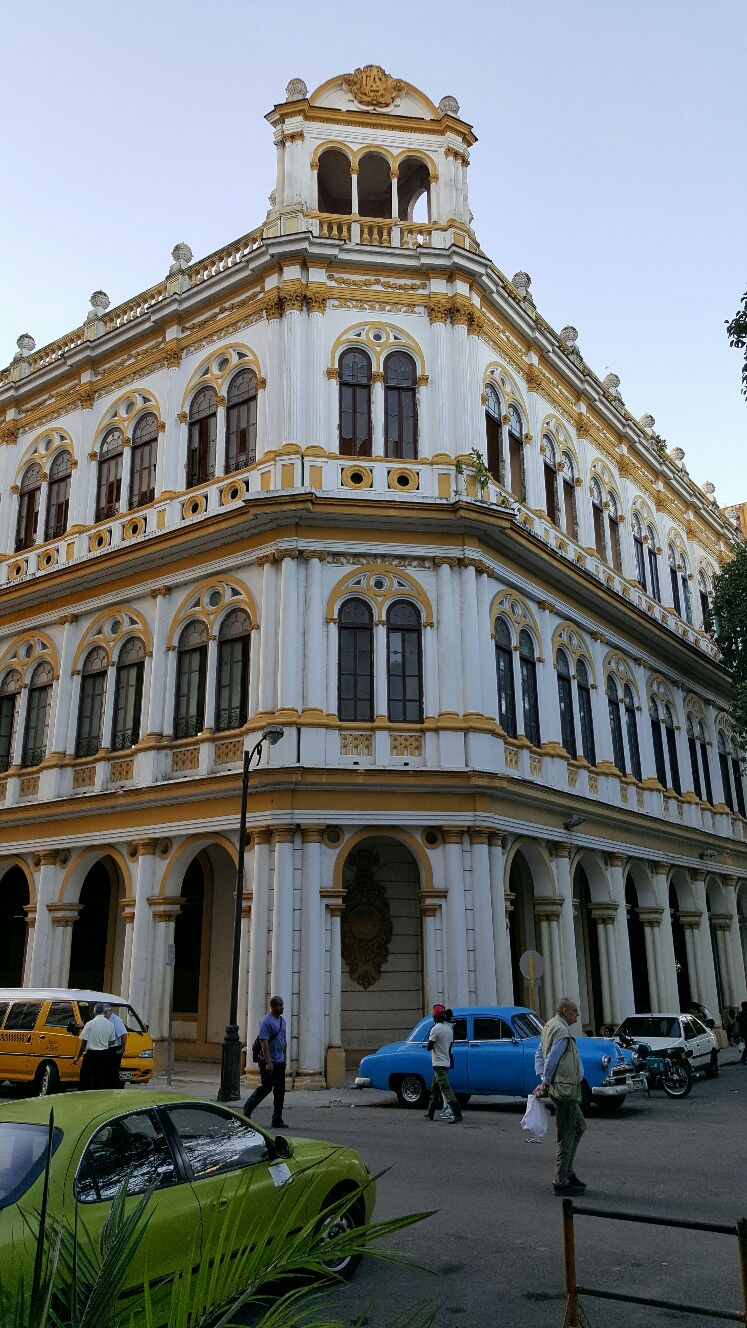Cuba; The Country of Paradox
Earlier this week, I just came back from a two week trip in Cuba, and what an amazing experience I had. Not only is Cuba such a unique place due to it’s unique government, but I also happened to be traveling there during a unique time in it’s history, and the US’s history. Donald Trump has just been elected, and very possibly will rollback the work that Obama has done to build a relationship with Cuba. Therefore, it’s quite possible that Americans may not get to travel there as easily. Additionally, I was there when Fidel Castro passed away! To be there at that historic moment was quite spectacular. Mostly this experience gave me a chance to reflect on my life, my career choices, and really what is important in life in general.

I traveled to Cuba with a group of fellow students, and we traveled there to study a combination of different subjects, including Political Science, Sustainability, and Art. I was there for the art portion of the group, and I signed up for this trip in order to increase my art knowledge, as well as gain insight on other cultures, both of which, I feel in the long run will make me a better designer. Today, I wanted to share some of my take-aways from this once in a lifetime trip.
With Cuba being a socialist economy, they are lucky to have the government pay for certain things like health care, education, and housing. Not only does the government pay for education, but they specifically really see the value in the arts and art education. While I was there, we visited several art schools, and artist groups, that were all paid by the government. All I could think is how amazing that would be. To be paid just to do your craft, and share it with the people around you. It’s a pretty special thing in my opinion that the government recognizes the importance of the arts. Whereas, in the US we can barely afford the funding for basic art programs in public schools anymore. I spent a lot of time talking with local Cuban people, and they all recognize and appreciate this fact about their government, and honestly, wouldn’t want to change that.

The interesting thing about Cuba, is what they consider a human right. Providing health care, education, and housing Cubans feel is a fundamental human right that every citizen should have access to, that here in the US, is viewed more as a benefit. For instance, while spending several nights in Havana, I did not see any homeless people. However in the US, if you go to any major city, you will certainly see people living on the streets. On the other hand, having a disposable income, is not really viewed as something that every citizen needs in Cuba. Therefore, Cubans are paid very little in their jobs, and really only covers the expense for food. Without having a disposable income, Cubans do not live by a mentality that you need always buy the latest and greatest of anything on the market. Therefore, one of the biggest things I noticed about Havana- is that there is no advertising for anything anywhere. This fact, honestly is kind of hard to imagine. It’s hard to imagine being in a large city, and not constantly being bombarded by billboards and lights! It was quite refreshing, as well as a little bit post-apocalyptic feeling, to not be in a world dominated by capitalism.

However, even though the Cuban people feel that they have mostly the things that they need in life, food is very expensive for them because of the US Embargo. Although they do make money to pay for food, since Cuba has to trade with countries so far away, it makes the cost of food very high, therefore, most Cubans cannot afford to have enough food. Additionally, Cuba grows a lot of its own food, but it makes food very scarce. While I was there, I stayed at a local community center, where food was provided in a family style, and with every meal, I felt truly thankful for what I was given.
Going through these experiences made me consider a few things. First, what would it be like to live in a world that isn’t dominated by capitalism? Since Cubans do not spend their time on shopping, or going out, they spend so much time with each other, giving the country such a strong sense of community. While I was there, the locals were so extremely friendly, and willing to talk to me, and I never once felt unsafe talking to strangers. Since my career exists on this principal of capitalism, what would I be doing creatively without it? What would my life be like with such a strong community? Secondly, what would my life be like if I could be paid by the government to pursue my creative abilities? What an amazing life it would be to live so simply. To grow my own food, spend time with the people around me, and simply make art. These thoughts all make me think that maybe Socialism isn’t this terrible system like we were taught when growing up. Both Capitalism and Socialism as economic systems are not perfect, but they definitely each have their benefits.

All of these questions raise more questions of what my next path in life will be. All I know, is that I want to be creative, but somehow benefit others and help those less fortunate than myself, while being creative. In the meantime, I am just going to keep creating and traveling to figure it out. Thanks for reading!











